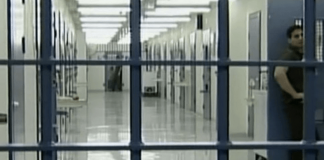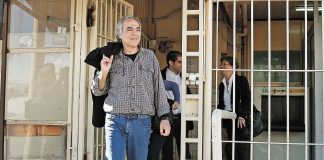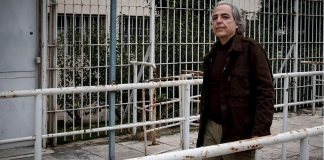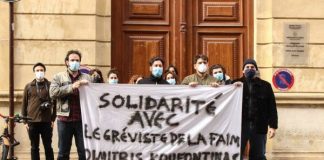Prisons
Kosovo experts oppose Denmark prison outsourcing
By Charles Szumski
Dec 22, 2021
Experts and opinion leaders have told Danske Radio journalists they oppose the Danish-Kosovo deal under which Denmark will rent 300...
Prisons Prime Testing Ground for Dehumanizing Hi-Tech “Advances”
A new form of exploitation, known as “stakeholder capitalism,” is already being tested in many places around the world and prisons are among the...
Koufontinas : la Grèce retient son souffle
par Yannis Youlountas
27/02/2021
40 ans après Bobby Sands sous Thatcher, Koufontinas n’a plus que quelques heures à vivre sous le régime de plus...
Health of Dimitris Koufodinas deteriorated
Feb.28, 2021
Athens.- (GreekNewsOnline, AMNA, AFP)
The health of convicted terrorist Dimitris Koufodinas has swiftly deteriorated on Saturday, said Head of Lamia General Hospital Andreas Kolokithas...
“Nous ne vivons pas au Moyen-Âge !” Une nouvelle crise grecque
Feb. 27, 2021
"Nous ne vivons pas au Moyen-Âge" écrit aujourd'hui dans son article le président de l'Union des juges et procureurs grecs Christoforos Sevastakis....
Solidarité avec le gréviste de la faim Dimitris Koufontinas
secure.avaaz.org
La Grèce sera-t-elle le premier pays européen responsable d’une mort par grève de la faim depuis l’Angleterre de Margaret Thatcher ?
Aujourd'hui, vendredi 26 février,...
“We don’t live in the Dark Ages!” Α new Greek crisis
"We don't live in the Dark Ages" writes in his article today the President of the Union of Greek Judges and Prosecutors Christoforos Sevastakis....
Court orders force-feeding of “17. November” convict Koufontinas on hunger &...
February 24, 2021
Judicial authorities ordered the force-feeding of “17. November” convict Dimitris Koufontinas who is on hunger strike on the 48th days and on...
Facebook and Twitter in Goebbels’ role
The last hours and days both journalists and simple citizens in Greece protest accusing Facebook and Twitter of censoring their texts with which they...
Le gréviste de la faim grec Koufontinas risque la mort immédiate....
Par Dimitris Georgopoulos
23/02/2021
Grève de la faim grecque, depuis 45 jours maintenant, Dimitris Koufontinas, 63 ans, a insisté auprès de ses médecins pour qu'ils lui...






